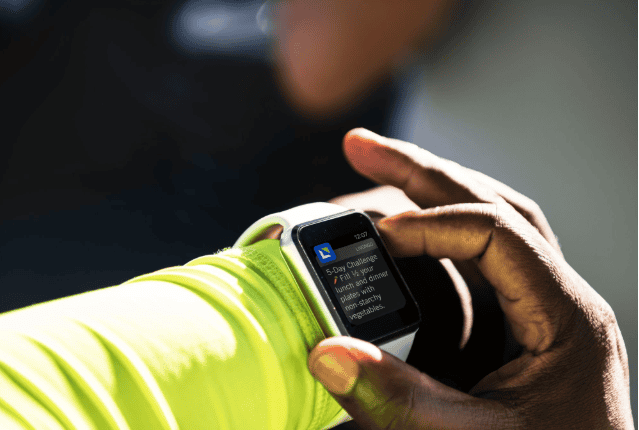
The health app is now on Fitbit, Apple Watch and other major smartwatches.
Livongo, a digital health platform for people with chronic conditions like diabetes, is now available for wearables. The company announced on Wednesday that it is integrating with a number of major smartwatches, including Fibit, Apple Watch and Samsung’s Gear smartwatch. Patients will be able to receive reminders to check their blood sugar, “nudges” to improve diet and exercise habits and other health information right on their wrist. Members can also sync their steps data from their smartwatch to the Livongo app on their smartphone.
“Our smartwatch integration allows us to capture information from our Members, add it to our AI+AI engine, and return actionable, personalized, and timely information back to them,” said Livongo president Dr. Jennifer Schneider in a statement. The Mountain View-based health startup, founded in 2014, currently serves over 164,000 active users. The technology is aimed at users with diabetes, high blood pressure and other chronic conditions. Most of its clients are large employers, as well as insurance plans and care providers. In addition to the app, Livongo also makes connected glucose meters and lancets.
The digital health company is working on expanding its reach across multiple platforms. Back in April, Livongo debuted an Alexa skill that allowed users to get blood glucose readings and other health tips from their device. The company is also using Amazon Lex and Amazon Polly to power its voice-enabled blood pressure monitoring system.
The idea that wearables, smartphones and other devices can double as medical tools is gaining momentum among the medical community — as well as the users themselves. Wearables are no longer mere step counters; they can now read blood pressure, calculate VO2 max, heart rate, sleep, stress levels and more. And their functions are only growing as technology becomes more advanced. Cardiogram, an advanced heart-rate tracking app that works with Apple Watch, Fitbit and Watch OS, was found to detect diabetes with an 85 percent accuracy rate. As wearables market continues to expand, it’s a guarantee we’ll see more advanced uses of healthcare technology down the line.


